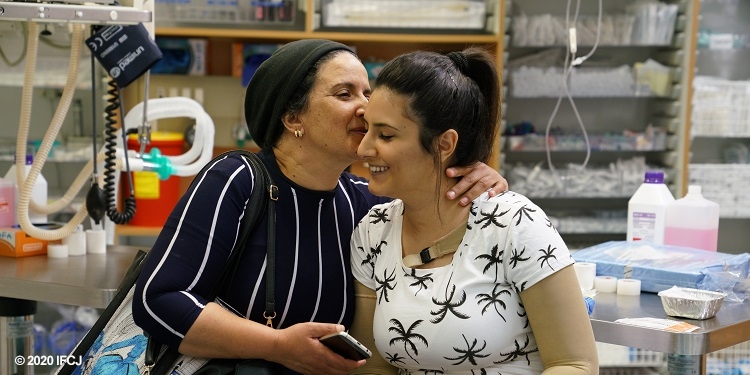Thank God for the Expected
Yael Eckstein | November 30, 2022

She [Leah] conceived again, and when she gave birth to a son she said, “This time I will praise the LORD.” So she named him Judah. Then she stopped having children. —Genesis 29:35
Rabbi Abraham Joshua Heschel, a renowned Jewish theologian, once said, “It is gratefulness which makes the soul great.” Please enjoy these devotions focused on gratitude during this season when families gather to give thanks.
Have you ever wondered who was the first person in the Bible to thank God? According to the Jewish sages, the answer is none other than Leah, the matriarch. Is that surprising to you?
You might be thinking, “Didn’t Abraham and Sarah praise God for the incredible miracle of a son in their old age?” We even see that Hagar, Ishmael’s mother, praised God when He rescued her in the desert (Genesis 16:13). Why did the sages say that Leah was the first to thank God?
The truth is that when we read Genesis, we don’t see anyone actually say “thank you” to God until Leah. Others praise God, but nobody thanks Him until Leah. When Leah gave birth to her fourth son, she chose the name Judah or Yehudah in Hebrew.
Thank God for the Expected
We read, “She conceived again, and when she gave birth to a son she said, ‘This time I will praise the LORD.’ So she named him Judah. Then she stopped having children.” The Hebrew word odeh, translated here as “I will praise,” is from the root hoda’a, which actually means “thanks.”
In modern Hebrew, for example, the word for “thank you” is todah, from the same root. This is the root of the name Judah. Perhaps a better translation of this verse would be “I will give grateful praise,” or “This time I will thank the Lord.”
Did the sages really mean to say that Abraham, Sarah, and all the other great people in the Bible before Leah didn’t thank God? What was so special about Leah’s “thank you”?
In all other instances of praise of God, gratitude was expressed for an unusual occurrence, something miraculous. Abraham and Sarah had a child long after they should have been able to. Noah was miraculously spared from the flood. But Leah was the first to praise and thank God for the expected — a natural occurrence that people take for granted because it’s common and expected.
Leah understood that everything in life is a product of God’s intervention, and she even thanked Him for that which is perfectly natural. Shouldn’t we thank God for the expected as well as the unexpected?
Your Turn:
Take a moment of prayer to thank God for the natural gifts that we enjoy, and that we often take for granted.
